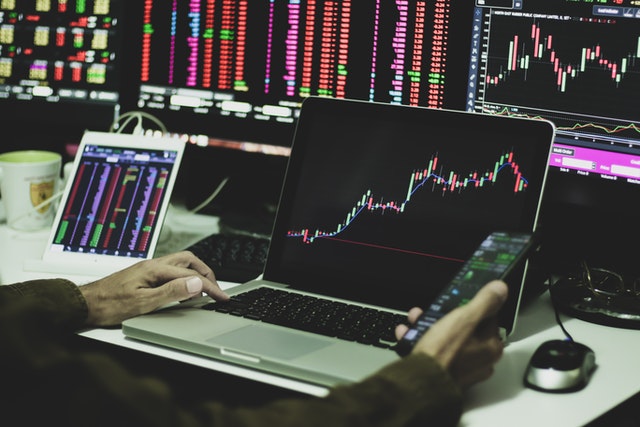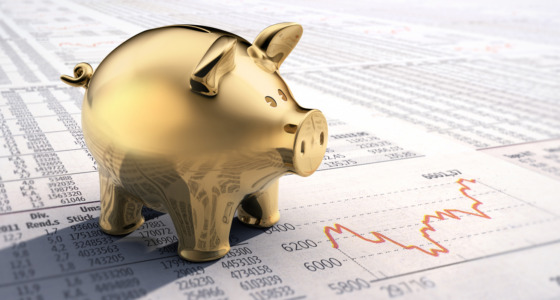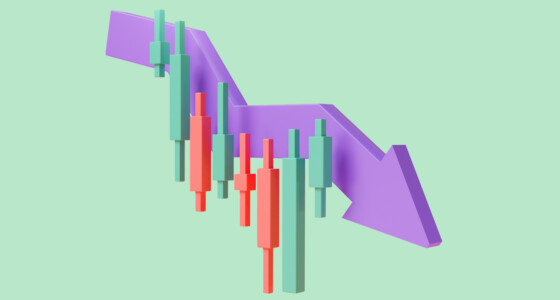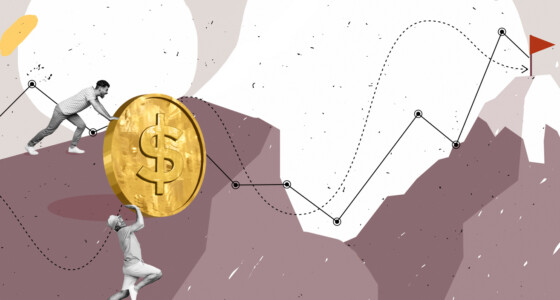

Modern-day stock trading has been around for nearly 300 years, and while crypto trading is still nascent – barely a decade old. Bitstamp, one of the oldest crypto exchanges, was launched in 2011. Inarguably, the mechanics of trading on stock exchanges and crypto exchanges are fairly uniform; however, they differ regarding the fundamental properties of the underlying assets being traded. Typically, stocks represent legal ownership in a company, while cryptocurrencies do not exactly confer any legal rights.
We’ll explore these similarities and differences throughout this article.
Similarities between crypto and stock trading
Driven by demand and supply
Any asset pricing is always impacted by the market forces of demand and supply regardless of their fundamental properties. In both stock and crypto markets, price fluctuations are sensitive to changes in supply and demand; volume analysis is essential for traders and investors. By definition, volume is the amount of a particular asset that has been traded over a specified period. Typically, most trading platforms indicate the volume traded.
Ideally, an increase in demand is often accompanied by an increase in stock or crypto prices. A sudden spike in volume indicates a high level of trading among market participants.
Technical analysis
Generally, any sound trading decision is guided by proper technical analysis. This involves studying historic market data to forecast the future price of any given financial asset. Technical analysis techniques involve indicator-based trading, price action analysis, and trend and pattern trading.

All charts – whether line charts or candlesticks – are designed to plot changes in an asset’s price over time. By looking at the price chart of a coin, we can now understand its previous price data, volume, and time intervals, all at one glance. On the other hand, technical indicators show the asset’s trend and momentum.
These aspects of technical analysis can be universally applied in trading. However, consider that some technical indicators are more suitable for volatile assets like cryptocurrencies.
Tradable assets
You can trade cryptos and stocks in the spot and derivatives market, which means you can either buy and hold the cryptos and stocks or trade their CFDs. You can buy and own the actual assets in their respective spot markets. When you buy stocks or cryptos from the spot market, you only benefit if their prices rise because you own the underlying asset.
When trading crypto or stock CFDs, you do not own the underlying assets but merely speculate on the direction of their prices. This means you either buy or short the market, taking advantage of both bull and bear markets. You can also use margin trading to significantly increase your exposure in the market, hence increasing the potential profits.
Differences between crypto and stock trading
Regulation
One of the biggest differences between crypto and stock trading is that they occur in different regulatory spaces. Typically, stock markets are centralized and heavily regulated, often with multiple financial regulators. Typically, the strict rules and regulations are geared towards consumer protection, guaranteeing exchange integrity, and preventing insider trading. Typically, only well-established companies are listed after complying with strict listing rules.
On the other hand, Crypto trading is decentralized with no regulatory oversight. Anyone can create shitcoins and sell them on P2P exchanges. A perfect example of this is how investors lost millions on EthereumMax. This is why conducting thorough due diligence is imperative.
Besides, decentralized exchanges allow peer-to-peer trading where anything goes. Sellers and buyers are free to set prices however they wish, making it easier to manipulate order books.
Liquidity
When trading, you’d prefer that your order is executed instantly, with no slippage. This ease of trading is only possible in a highly liquid market, making it hard to manipulate prices by systematically trading large blocks.
The stock market is one of the most liquid financial markets, only rivaled by the Forex market. This means that stock traders can seamlessly buy or sell stocks since there’s constant supply and demand.
In the crypto market, liquidity varies depending on the specific cryptocurrency and the crypto exchange. Typically, most mid and small-cap cryptos are less liquid, which means they are prone to slippages when large orders are placed.
Volatility
The crypto market is infamous for its extreme volatility; you must be prepared to assume an above average volatility risk when trading in the crypto market. Huge price swings are common in the crypto market, and they can fluctuate more than 10% in a day, especially when large volumes are traded.
Volatility is effectively tamed in the stock market. This is partly due to the high liquidity, which creates efficient price discovery. The regulation also plays a significant role since stock exchanges have a kill switch to halt trading on a particular stock if it fluctuates more than 10% within a trading session.

The bottom line
Well, there you have it, the most striking similarities and differences between crypto and stock trading.
The striking similarities make it relatively practical for a seasoned stock trader to get into crypto trading. And although the trading strategies and technical analysis remain fairly similar, remember that every form of trading carries risk. So, whether you’re trading stocks or cryptos, practice proper risk management measures and conduct thorough due diligence.









